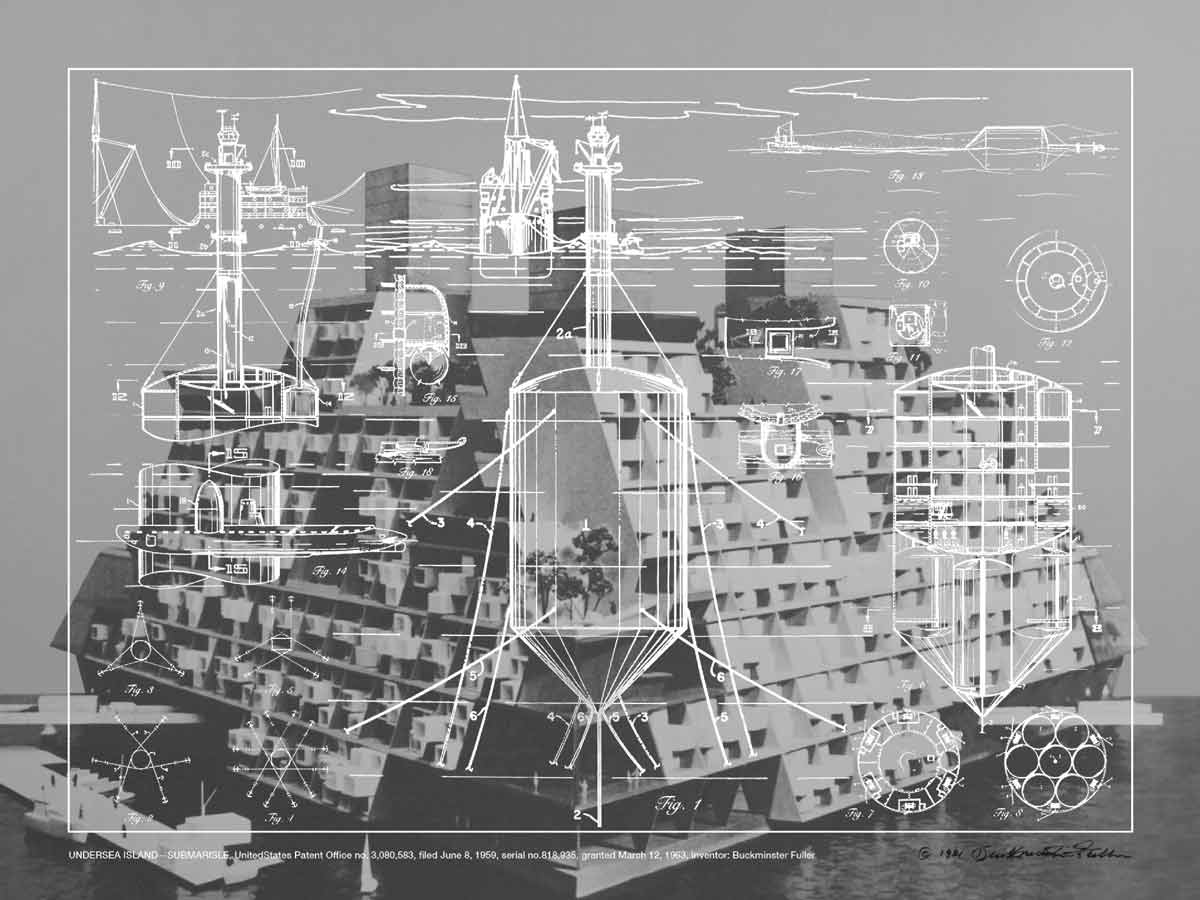
Heritage: Past, Present, Future - Symposium
This symposium in connection with the RCCAM special exhibition Heritage: Shaping Past, Present, Future brings together a range of guest speakers who explore how artists, architects, and craftspersons, represent and reproduce cultural heritage across the ages and through diverse media, which may reference, reinforce, or challenge perceptions of society’s past, present and future. Drawing on content within the exhibition and their own research, speakers will demonstrate how artworks are far from being static entities - they play an important role in mediating tradition and socio-cultural change. Participants will speak on a range of topics, ranging from ancient myths, to the rediscovery of antiquity, the removal and preservation of statues, architectural legacies of Miami University and memorialization of Freedom Summer, contemporary West African cultural heritage, the revitalization of Miami Tribal heritage, and the role of AI and digital art in interpreting heritage.
Open to All
To be held at: Richard and Carole Cocks Art Museum (RCCAM), Miami University, 801 S. Patterson Ave, Oxford, OH 45056
Open to all audiences, spaces may be limited.
Please contact artmuseum@MiamiOH.edu with any questions.
Programs are free and open to all. To help support us with this and future programs, please consider a gift to the Art Museum Support Fund.
Program made possible with support of Miami University: The Humanities Center; College of Creative Arts Dean’s Fund, Department of History, Department of Art, Department of Architecture and Interior Design, Department of Emerging Technology and Business in Design, the Art Museum’s Miriam W. Howard Fund.
Heritage Symposium Agenda
Heritage Symposium ~ Oct 5-6
THU, OCT 5
1:30 PM: Registration and exhibition viewing
2:30 PM: Introduction and overview
2:45 PM: Session1: Myth and Rediscovery
- The Heritage of Storytelling and Mythmaking: Connecting Past to Present
- Kathleen Lynch (University of Cincinnati, Department of Classics)
- Abstract: Humans past and present structure their worlds through narratives, which are often embellished with the presence of fictional characters or impossible events. We call this mythology, and while we first think of oral stories, visual representations of myth function just as potently but in a more poetic, allusive manner. This talk will explore how visualization of myths uses artistic vignettes that require the viewer to know the full tale and its meaning. We continue to reference ancient Classical myths in art and modern marketing, but the meaning evoked tells us more about the present than the past.
- Kathleen Lynch (University of Cincinnati, Department of Classics)
- Myth, Disruption and Heritage in Mesoamerica
- Jeb Card (Miami University, Department of Anthropology) ~
- Abstract: Mesoamerica is one of the great regions of the world that witnessed the emergence of agriculture, urbanism, literacy, and boasts a historical record over 2000 years old. Yet the primary conceptualization of pre-1519 Mesoamerica is through myth. Not only poorly understood versions of Mesoamerican mythic narratives but modern myths of uniquely savage empires driven by blood rituals and magical lost cities connected to Atlantis and aliens. Though mythification of the past can be found elsewhere, it is especially damaging in the Americas as part of colonial erasure of indigenous identity. The reality of objects of heritage defy denial of indigenous continuity.
- Jeb Card (Miami University, Department of Anthropology) ~
- Ancient Heritage Remembered: Representations of the Ruins of Rome
- Andrew Casper (Miami University, Department of Art)
- Abstract: The memory of ancient Rome emerged as a consistent preoccupation by artists in Renaissance Italy and stayed constant through the 1700s. This talk examines images by Giambattista Piranesi and Ferdinado Galli da Bibiena on display in the exhibition that reveal a turn in how artists imagined the heritage of antiquity. Whereas Renaissance painters in the 1400s often strove for archeological precision in the (re)creation of ancient structures, by the eighteenth century artists documented the glories of Rome’s past with a distinctly romanticist sentimentality that privileges the aesthetics of decay and ruination.
- Andrew Casper (Miami University, Department of Art)
Speaker Biographies
 Dr. Jeb Card is Assistant Teaching Professor of Anthropology. He specializes in historical archaeology, early colonialism, material culture hybridity, ethnogenesis, ceramic analysis, and pre-Hispanic Maya political history, working in Mesoamerica, chiefly in El Salvador. He received his Ph.D. from Tulane University.
Dr. Jeb Card is Assistant Teaching Professor of Anthropology. He specializes in historical archaeology, early colonialism, material culture hybridity, ethnogenesis, ceramic analysis, and pre-Hispanic Maya political history, working in Mesoamerica, chiefly in El Salvador. He received his Ph.D. from Tulane University.
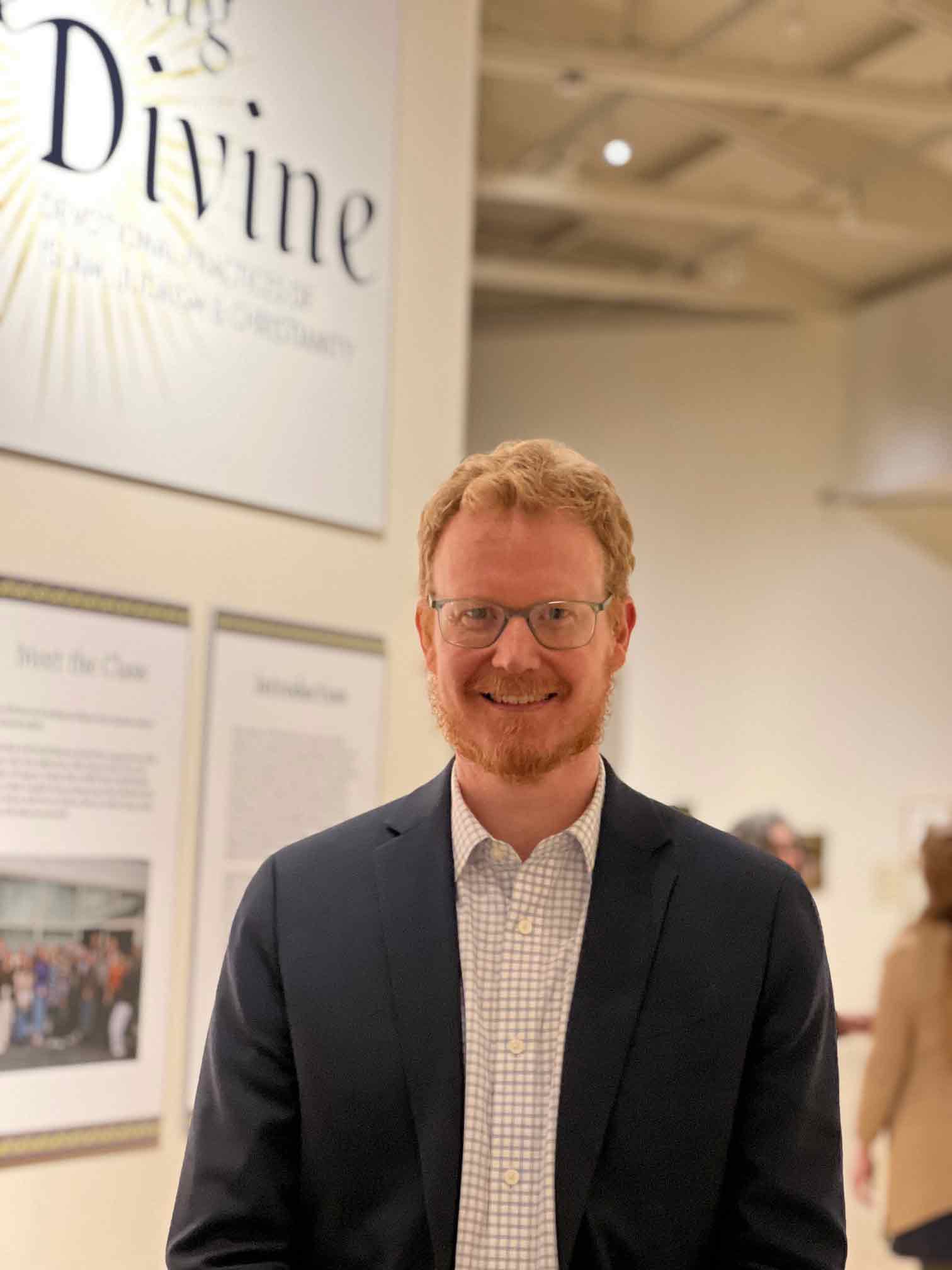
Prof. Andrew Casper received his BA from the University of Michigan and MA and Ph.D. from the University of Pennsylvania. He is the Head of Art and Architecture History and Professor of Art History in the Department of Art at Miami University where specializes in Renaissance and Baroque art of southern Europe, and particularly religious imagery in Italy in the late 1500s and 1600s. He is the author of two books: Art and the Religious Image in El Greco's Italy, published in 2014, and most recently An Artful Relic: The Shroud of Turin in Baroque Italy, published in 2021 and winner of the Roland H. Bainton Book Prize from the Sixteenth Century Society.
Social media - @AndrewRCasper1
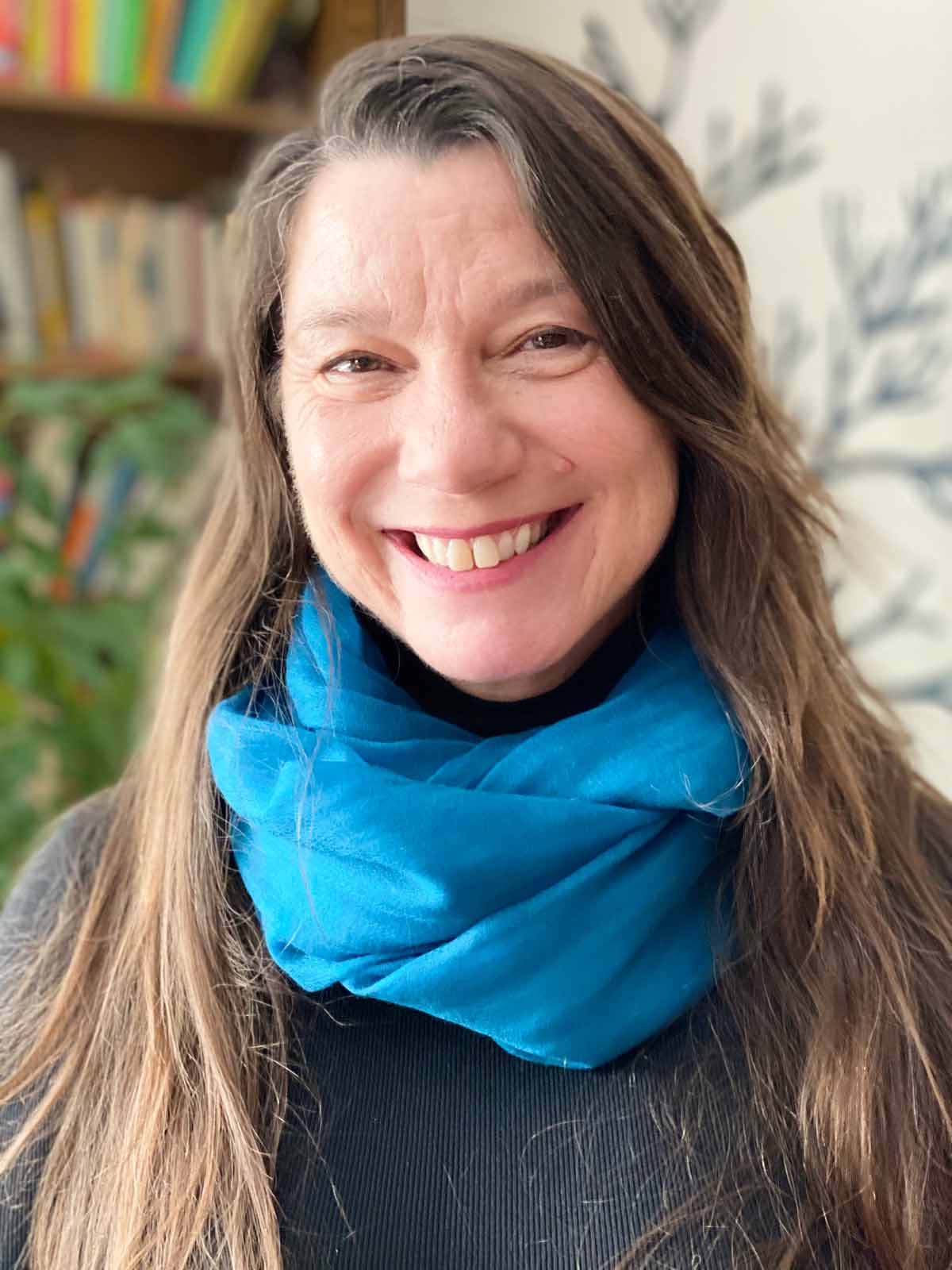 Kathleen is a Professor of Classics at the University of Cincinnati and an archaeologist specializing in ancient Greek material culture. Her research focuses on ancient Greek pottery, especially ceramics with figural narrative made in Athens from the Archaic Period to the Hellenistic period (600-300 B.C.). She has published pottery from a house in Athens, a sanctuary in Albania, and the site of Troy, in Turkey. At Cincinnati she has won the Dolly Cohen teaching award and frequently teaches a large introduction to Classical mythology course. In her freetime she enjoys knitting.
Kathleen is a Professor of Classics at the University of Cincinnati and an archaeologist specializing in ancient Greek material culture. Her research focuses on ancient Greek pottery, especially ceramics with figural narrative made in Athens from the Archaic Period to the Hellenistic period (600-300 B.C.). She has published pottery from a house in Athens, a sanctuary in Albania, and the site of Troy, in Turkey. At Cincinnati she has won the Dolly Cohen teaching award and frequently teaches a large introduction to Classical mythology course. In her freetime she enjoys knitting.
4:30 PM: Keynote
- Monumental Change: Recent Responses to Controversial Sculptures in America
- Erin L. Thompson (John Jay College, City University of New York) in discussion with Mary Rogero (Miami University Department of Architecture and Interior Design)
- Abstract: In 2020, for the first time ever, the majority of Americans said “yes” when asked in surveys if controversial monuments should be removed. The years since have seen mass protests about monuments in the United States, and over 200 of them left their pedestals. Yet, most of these monuments were simply moved elsewhere or are awaiting reinstallation. So, what’s really going on with U.S. monuments? My talk will summarize some of the surprising facts about what really changed from 2020 to the present, explaining the legislative changes, lawsuits, and other factors that are keeping even the most controversial American monuments on view.
- Click here to watch the recorded keynote.
- Erin L. Thompson (John Jay College, City University of New York) in discussion with Mary Rogero (Miami University Department of Architecture and Interior Design)
Speaker Biography
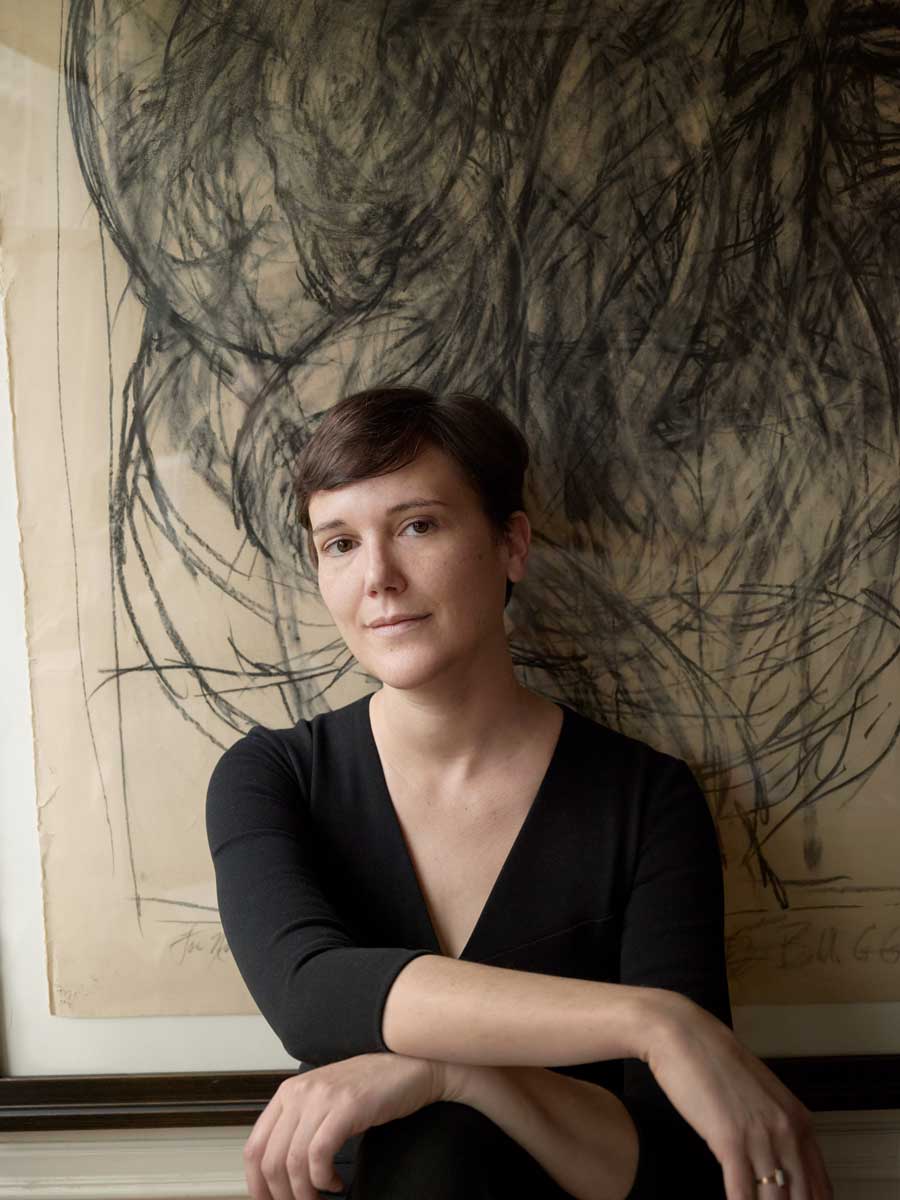
Erin L. Thompson is America’s only professor of art crime. She teaches at John Jay College at the City University of New York and holds a PhD in Art History and a law degree. She studies the deliberate destruction of art, analyzing the ways in which this destruction has sometimes harmed and sometimes benefited communities. She has spoken about monuments controversies with outlets including the New Yorker, New York Times, Cp, and “The Today Show,” and both Stephen Colbert and John Oliver have referenced her work. Her book Smashing Statues: The Rise and Fall of American Public Monuments, was published by Norton in 2022.
Social Media - Twitter: @artcrimeprof
FRI, OCT 6
8:30 AM: Registration and exhibition viewing
9:30 AM: Welcoming remarks
9:40 AM: Session 2: Miami University and Western College Heritage
- History of the Freedom Summer Memorial on Western Campus
- Jacqueline Johnson (Miami University, University Archivist and Principal Librarian)
- Abstract: The Freedom Summer Memorial is a lasting reminder of the ideals of Freedom Summer 1964, made possible by Oxford NAACP, Friends of the Mississippi Summer Project, and Miami University. It honors all who participated in the Mississippi voter registration drive, and specifically the three slain civil rights workers James Chaney, Andrew Goodman, and Michael Schwerner. Their disappearance and deaths focused international media attention on Oxford Ohio and Western College. The presentation will focus on Freedom Summer’s history, and the design, concept and construction of the memorial sited on the Western Campus.
- Jacqueline Johnson (Miami University, University Archivist and Principal Librarian)
- Charles Cellarius – Miami’s Architect
- Robert Keller (Retired, former Miami University Architect)
- Abstract: In 1938 Miami had 20 buildings totaling 775,000+- s.f. In 1939 Cellarius completed his first residence hall design on campus. Over the next 31 years he designed 40 more Miami buildings adding over 2,000,000 s.f. His work was the single most significant factor shaping the campus of today. He embraced the residential campus concept, creating five “residential quadrangles” around the academic core. We will discuss how his arrangement of buildings around open green spaces, along primary and secondary axes, and his attention to views and vistas continues to influence the work being built today.
- Robert Keller (Retired, former Miami University Architect)
Speaker Biographies
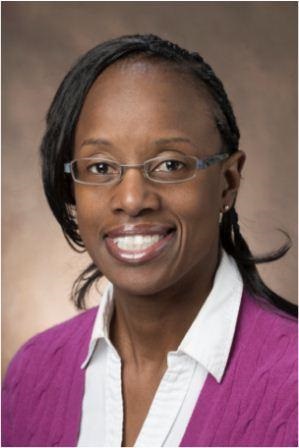 Jacqueline Johnson is currently the University Archivist and Princial Librarian at Miami University Libraries. Her research focuses on the history of Western College for Women, Oxford College for Women, and the Mississippi Summer Project. Johnson is the author of Finding Freedom: Memorializing the Voices of Freedom Summer (Miami University Press) and Western History (Arcadia Press). Her published works also appear in the books Celebrating the Oxford, Ohio Bicentennial 1810-2010 and Where are all the Librarians of Color? The Experiences of People of Color in Academia (Litwin Books). Her latest book chapter “Citizenship, Social Justice, and Arts-based Dialogue through the Mississippi Freedom Summer Project of 1964” will appear in the monograph Engaging Youth Civic Participation: Critical Approaches to Teaching Digital Media in Art Classrooms and Communities (2022).
Jacqueline Johnson is currently the University Archivist and Princial Librarian at Miami University Libraries. Her research focuses on the history of Western College for Women, Oxford College for Women, and the Mississippi Summer Project. Johnson is the author of Finding Freedom: Memorializing the Voices of Freedom Summer (Miami University Press) and Western History (Arcadia Press). Her published works also appear in the books Celebrating the Oxford, Ohio Bicentennial 1810-2010 and Where are all the Librarians of Color? The Experiences of People of Color in Academia (Litwin Books). Her latest book chapter “Citizenship, Social Justice, and Arts-based Dialogue through the Mississippi Freedom Summer Project of 1964” will appear in the monograph Engaging Youth Civic Participation: Critical Approaches to Teaching Digital Media in Art Classrooms and Communities (2022).
 Robert Keller was the University Architect & Campus Planner at Miami University for 23 years where he was Director of the Division of Planning, Architecture & Engineering overseeing long range planning, design, and construction. Mr. Keller was appointed Associate Vice President for Facilities, Planning & Operations expanding his responsibilities to include, utility operations, grounds, maintenance, custodial services, and special events. Since retirement in 2016 Mr. Keller continues guest lecturing for the university, has designed several memorials on campus including the Freedom Summer Memorial and enjoys exploring various forms of art in his studio at the Oxford Community Art Center.
Robert Keller was the University Architect & Campus Planner at Miami University for 23 years where he was Director of the Division of Planning, Architecture & Engineering overseeing long range planning, design, and construction. Mr. Keller was appointed Associate Vice President for Facilities, Planning & Operations expanding his responsibilities to include, utility operations, grounds, maintenance, custodial services, and special events. Since retirement in 2016 Mr. Keller continues guest lecturing for the university, has designed several memorials on campus including the Freedom Summer Memorial and enjoys exploring various forms of art in his studio at the Oxford Community Art Center.
10:30 AM: Session 3: Revitalizing Heritage
- Performing Heritage in Nigeria: The Artistic Philosophy of the Ekpe Nkanda Masquerade
- Jordan Fenton (Miami University, Department of Art)
- Abstract: African masquerade is an expressive genre that is best known for its dynamism, vitality, and changing quality. Based on earlier research, masquerade has long been understood as an extension of myth and ritual. Focusing on a Nigerian masquerade, this talk moves beyond such limiting understandings to explore Nkanda as a form of kinetic heritage. Defying conventional notions, analysis of Nkanda will demonstrate how crucial art is for reflecting on matters of heritage as it performs the underlying artistic philosophy of Ekpe passed from ancestors to living members.
- Jordan Fenton (Miami University, Department of Art)
- Culture as Living Memory: Picking up the Threads of Myaamia Weaving
- Jared Nally (Miami Tribe of Oklahoma and Myaamia Center at Miami University)
- Abstract: My hands hold memory as a weaver — muscle memory takes over as my hands talk to the threads, but there is another, much older memory that is part of my craft. Culture and heritage transmit generations of memories. These memories are what I find most important in engaging in heritage arts. Culture teaches us how we live in the world as a People, and understanding that has shaped many new ecological relationships for me as I began picking up the threads of Myaamia weaving. Those threads come from relationships to plants found in Myaamionki (the Miami homelands), and learning to weave is learning how to tend to those relationships.
- Jared Nally (Miami Tribe of Oklahoma and Myaamia Center at Miami University)
Speaker Biographies
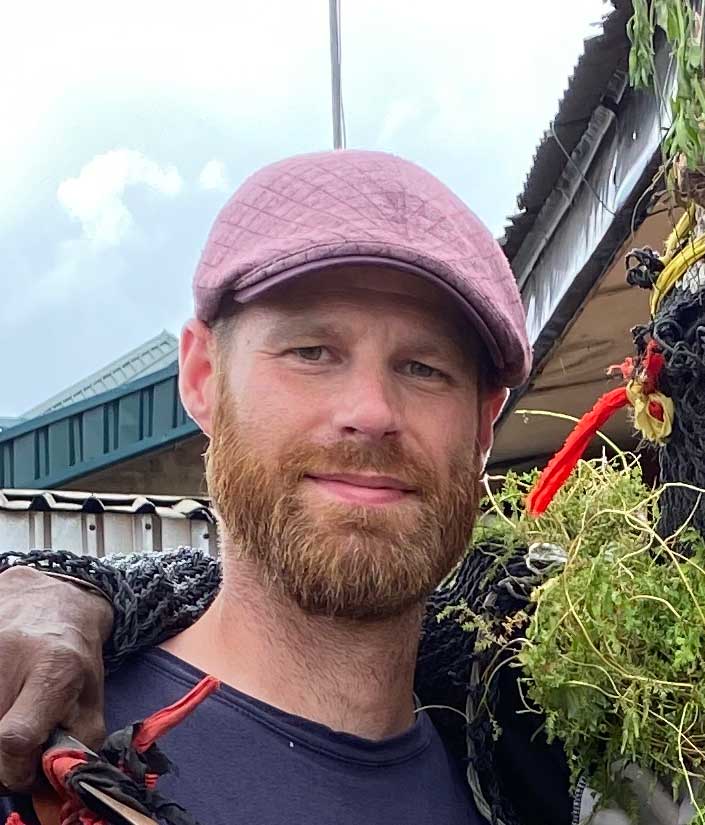 Jordan A. Fenton is an Associate Professor of Art History at Miami University. Earning a PhD from University of Florida, Fenton’s focus is the arts of Africa, specifically exploring masquerade, secret societies, indigenous knowledge systems, herbalism, and ethical fieldwork methods. He is author of Masquerade and Money in a Nigerian City: The Case of Calabar (University of Rochester Press), 2022. He is an editor of the leading journal in the study of African expressive culture, African Arts. Fenton has conducted fieldwork in Nigeria since 2008.
Jordan A. Fenton is an Associate Professor of Art History at Miami University. Earning a PhD from University of Florida, Fenton’s focus is the arts of Africa, specifically exploring masquerade, secret societies, indigenous knowledge systems, herbalism, and ethical fieldwork methods. He is author of Masquerade and Money in a Nigerian City: The Case of Calabar (University of Rochester Press), 2022. He is an editor of the leading journal in the study of African expressive culture, African Arts. Fenton has conducted fieldwork in Nigeria since 2008.
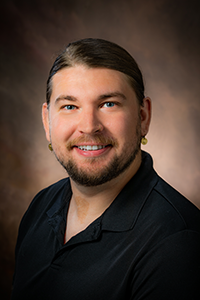 Jared Nally is a citizen of the Miami Tribe of Oklahoma (Myaamia) and a Myaamia weaver. Jared received his bachelor's degree in Indigenous and American Indian Studies at Haskell Indian Nations University in 2021 and is currently attending Miami University as an Aanchitaakia Graduate Fellow at the Myaamia Center, pursuing a master’s degree in Environmental Science. Jared’s graduate work focuses on the intersection between material culture and ecological relationships — work that includes community revitalization efforts and the exploration of cultural uses for invasive plants like honeysuckle and bradford pear.
Jared Nally is a citizen of the Miami Tribe of Oklahoma (Myaamia) and a Myaamia weaver. Jared received his bachelor's degree in Indigenous and American Indian Studies at Haskell Indian Nations University in 2021 and is currently attending Miami University as an Aanchitaakia Graduate Fellow at the Myaamia Center, pursuing a master’s degree in Environmental Science. Jared’s graduate work focuses on the intersection between material culture and ecological relationships — work that includes community revitalization efforts and the exploration of cultural uses for invasive plants like honeysuckle and bradford pear.
11:30 AM: Session 4: Future Pasts
- Future Pasts - The Radical Openness of AI in an Expanded Field
- Daniel R. Small (Artist / Filmmaker, Los Angeles)
- Abstract: This lecture will focus on the creation of the short AI generated animation Myth of the Divine included in the Heritage exhibition; and an attempt at locating, merging, and illuminating emergent aesthetic and narrative potentials using aggregates of text based creation myths and AI configurations. He will discuss an expanded network of relations from indigenous epistemologies and their relationships with Artificial Intelligence and Natural Language Processors (NLP) as well as how divination plays a role in both the creation and reception of data based AI representations. He will contemplate how humans instrumentalize AI vs AI instrumentalizing and becoming a determinant of humans; and where potential hybrid models of thinking about the convergence of humans and AI might give agency to certain cultural and representational polemics.
- Daniel R. Small (Artist / Filmmaker, Los Angeles)
Speaker Biography
 Daniel R. Small is an American contemporary artist, filmmaker, anthropologist, educator, and author based in Los Angeles, California. His work engages with speculative pasts and futures through interventions in sites, narratives, and technologies, by considering material histories, exchanges, and relationships. He has also engaged with organizations such as the Federal Bureau of Investigation, NASA Jet Propulsion Laboratory, Forensic Architecture, UNESCO, and others, working alongside these institutions to set up various thought experiments or interventions within pre-existing research systems or archives.
Daniel R. Small is an American contemporary artist, filmmaker, anthropologist, educator, and author based in Los Angeles, California. His work engages with speculative pasts and futures through interventions in sites, narratives, and technologies, by considering material histories, exchanges, and relationships. He has also engaged with organizations such as the Federal Bureau of Investigation, NASA Jet Propulsion Laboratory, Forensic Architecture, UNESCO, and others, working alongside these institutions to set up various thought experiments or interventions within pre-existing research systems or archives.
Social Media - IG: @danielrsmall Facebook: Daniel R. Small
12:15 PM: Closing Remarks
Spaces are limited.
Please write to ArtMuseum@MiamiOH.edu with any questions.